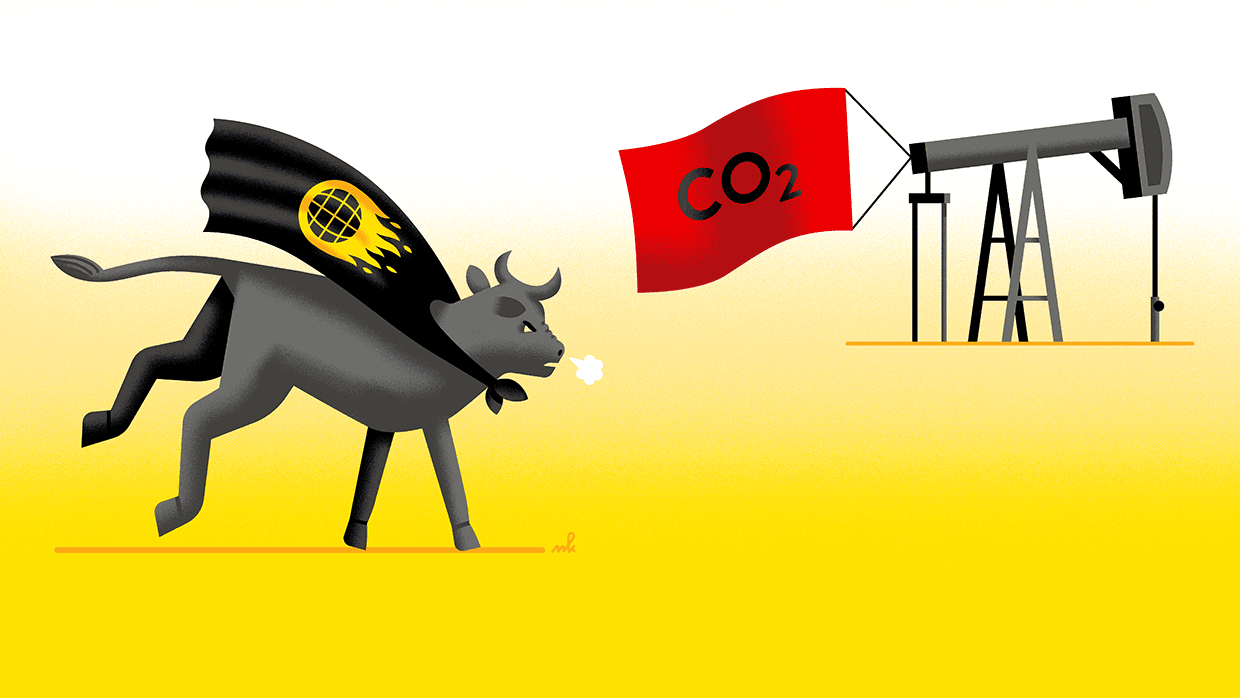
UvA to work with fossil fuel industry only under strict conditions
The decision has been made: the UvA has decided that no new collaborative agreements will be entered into with companies from the fossil fuel energy sector unless several strict conditions are met. Current collaborative projects will continue.
This is the outcome of months of consultation between the UvA Board of Governors and the academic community. During several meetings, the Board of Governors gathered as many insights as possible from all across the UvA and, according to Rector Magnificus Peter-Paul Verbeek, “a broadly supported decision” emerged. In the end, there appears to be consensus on important points: There is a climate crisis that can be considered a global emergency requiring urgent action, the energy transition must be accelerated, and meeting the Paris climate goals is paramount.
“Global warming is progressing so fast that our future is in danger,” says Verbeek. “We want to accept our responsibility in this and that means not only setting clear limits on cooperation with the fossil fuel sector but also investing more in sustainability. The UvA will initiate additional measures to accelerate the energy transition and step up efforts to achieve the climate goals of the Paris Agreement by intensifying research and education on sustainability and tightening sustainability policies in its operations.”
Three criteria
This decision means that the UvA will no longer collaborate on projects together with the fossil fuel industry unless three strict criteria are met. First, the explicit purpose of the project must be to contribute to achieving the goals of the Paris Agreement; there can only be collaboration if the project cannot be realized in another way or with other, non-fossil fuel partners; and a multidisciplinary and broadly composed advisory committee will assess as appropriate whether the intended contribution to climate goals justifies this collaboration. For the record: Current UvA projects with the fossil fuel industry are not yet required to meet the new criteria.
Assessment
The tightened rules for cooperation with third parties will be laid down in a new so-called “Policy Framework for Cooperation with Third Parties.” Every collaborative project with the fossil fuel industry will be submitted by the dean of the faculty in question for review against this framework by the Advisory Committee on Collaboration with Third Parties. Transparency and scientific integrity must be paramount in any collaboration. For example, the UvA says it “will not allow itself to be sponsored by Shell or other companies from the fossil fuel industry,” will intensify sustainability at all levels including education and operations, and will include provisions in collaborative projects for communication about this collaboration to prevent greenwashing.
According to UvA’s calculations, the financial contribution from research from the fossil fuel industry is currently less than one million euros. This represents about 0.3 percent of the total research budget on an annual basis, according to the UvA. That, including contract research, amounts to around €330 million a year.

